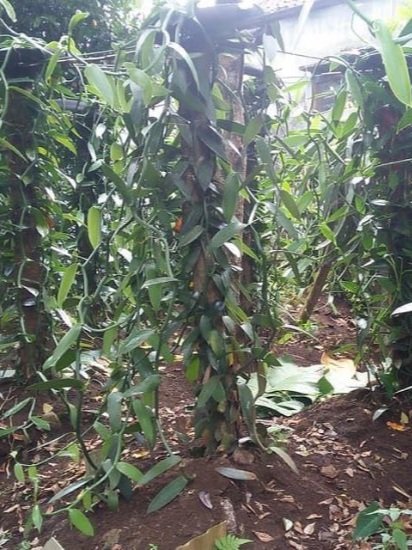
Ingredients
Our stance on ethical sourcing and healthy eating
converge in the little list on the back of each bar.
Sugar is Everywhere
When I started reading some food labels, I realized how much processed sugar I was actually consuming, and how universal added sugar has become. I find it in everything from salsa and garlic bread, to pesto and crackers!
Sneaking it in left and right ensures we're kept at a moderate to high blood sugar level all day. And when we crash, what do we desperately reach for? Whole, nutritious foods? No, but that's not from any weakness, or inadequacy on our part.
The most valuable tool for bulk food production.
Excessive sugar is incredibly good at masking the quality of raw ingredients, which saves millions for any food and beverage megacorporation. Whole unprocessed ingredients, because they're not chemically addictive, are just not as profitable.
The food industry has discovered that pumping up our sugar intake is a simple and cheap way to dramatically influence our buying behavior.
Are Healthy Eating Habits Good for the Economy?
Profit-driven corporations provide essentially all of the food we have access to. It's so important to acknowledge the massive influence they have on public health. We feel passionate about shifting more responsibility onto companies to provide nourishing food we can eat, without guilt, simply for the enjoyment of eating.
Food is not the only industry that benefits.
Processed food dependency paired with the belief that it's our fault is very effective fuel for harmful diet culture and the 70 billion dollar weight loss industry. Our goal is not to promote restrictive eating, but to provide products and messaging that encourage a better relationship with food.
Our goal is not to promote restrictive eating, but to provide products and messaging that encourage a better relationship with food.

Our favorite sweet stuff
A World of Flavor
From a culinary perspective, the caramel flavor of dates, nuttiness of coconut sugar and the rich nostalgic aroma of maple syrup, all invite more intrigue and complexity to our favorite sweets than table sugar ever did.
It's Good For You Too
What's more, our bodies absorb these naturally sweet foods differently.
When we digest unrefined sweeteners, fructose and glucose release into our bloodstream gradually, without spiking our blood sugar. I don't happen to be diabetic, but I found that cutting out these high glycemic foods, or at least being aware of how ubiquitous they are, has improved my relationship with food, and my overall health pretty dramatically.
Coconut Sugar
Coconut sugar is made by evaporating the nectar from coconut flowers. With a lower glycemic index than regular sugar, and a small amount of inulin, it's a more appealing sweet alternative that offers a nutty, rich molasses flavor.
90% of the Indonesian land producing coconut nectar is owned by farmers. Coconut trees abundantly produce in this region without requiring fertilizers or depleting the soil's nutrients. They also produce 50-75% more nectar per acre than cane sugar.
Mesquite
Mesquite powder comes from the same drought-tolerant plant as the wood chips used for barbecue. We use the fruit of the leguminous plant instead, grinding its seed pods into a fine powder, which adds complexity and a hint of sweetness to our dark chocolate base. It's a low-glycemic source of protein and fiber as well as potassium, calcium, lysine and magnesium.
Our organic mesquite comes from Peru, where these highly resilient spreading bushes can produce for hundreds of years.
Vanilla
Our vanilla is sourced from suppliers in direct trade with Java Island farmers in Indonesia. Beans fruit from the planifolia orchid vines, which climb the trunks of small trees. Farmers hand pick the beans while they're still green and lay them out to sun dry and cure over the course of several weeks.
Rather than extract, we use the entire bean, ground to a powder, and blend it straight into our 75% dark chocolate.

Labels and Certifications
Fair Trade
Our chocolate is Fair Trade certified, but more importantly, it has a simple and straightforward supply chain wherein all the employees involved make sustainable, living wages. Our cacao supplier managed to get Fair Trade Certified, but the label unfortunately doesn't provide the assurance it should and it's important to look further than this certification.
The purpose of the Fair Trade label is to assure consumers that children and underpaid growers aren't involved in the supply chain. However, the certification process has been problematic from the beginning, and sometimes extremely misleading. Nestle, one of the longstanding perpetrators of of exploitative practices in the industry, managed to get the valuable logo on their KitKat bar, back in 2009, even though more than half of their sourced chocolate is untraceable by their own reports. Meanwhile small, craft chocolate makers using 100% traceable chocolate still struggle to get fair trade recognition.
We encourage our cacao-lovers not to blacklist other chocolatiers who have a transparent supply chain, but can't get the label.
On the other hand, some chocolate companies have managed to get the label based on the fair trade status of other ingredients in the product, while the cacao itself is not even evaluated. Now we can understand why the certification process falls short of giving the assurance it promises. Read more about the fair trade issue as it relates to chocolate production here.
Organic
Much like the fair trade certification, the requirements for organic credentials can be unnecessarily expensive and exclusionary for small, ethical chocolate producers. Similarly, not all of our ingredients are organic, but we prioritize quality and sustainability, taking into account several factors the organic certification doesn't include, like shipping methods, packaging materials and waste management.











